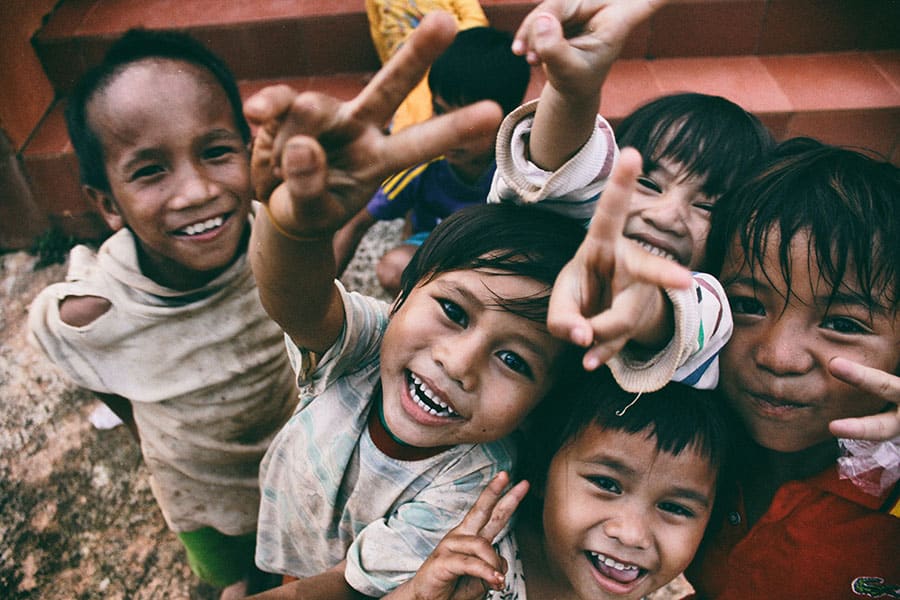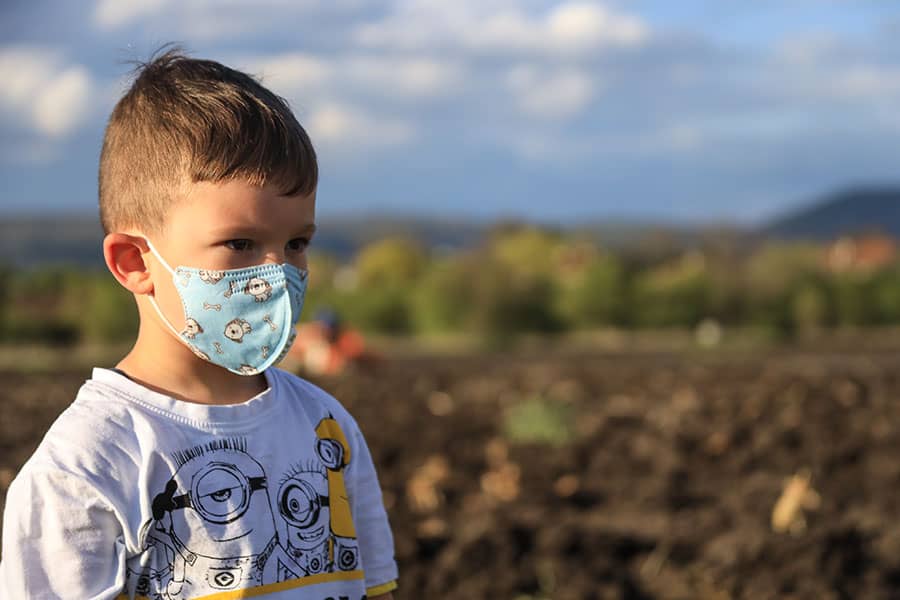We have all heard the stereotypes about homeschoolers being anti social. You might be here because you want to know whether these stereotypes are true, but let me tell you they are often not. Homeschooled students do have social lives, and are just as social as students who attend conventional school. Just because they are doing school at home doesn’t mean that they don’t have friends. Most homeschoolers are just as social outside of school as students who attend conventional school.

Some homeschoolers might be a little bit anti social, but so are some students in conventional school. If you have an anti social homeschooler it can be a little bit harder to get them socializing compared to if they were in conventional school, because they are not going into an environment with lots of others students their age every day. And this is probably why and how the stereotype started.
Every student is different, so you should not always assume that all homeschoolers are not social enough. In fact most homeschoolers have plenty of social activities going on during the week, whether it is during the day with other homeschoolers, or after school. There are stats and studies proving that homeschooled students are equally as social and have an equal amount of close friends as students who are in conventional school.
So overall the myth of socialization and homeschooling is not true, but I did a little bit of research about it, and found some interesting things. If you want to find out more about this topic, I will get more into it below.
What is Socialization?

The definition of socialization is the activity of being social with others. So it means that you are around other people and communicating with them. There is no age barrier to socialization. It doesn’t mean that your child needs to be playing with kids their own age, it can be any way of being social. So even going to the grocery store, or talking to other parents counts as socialization for anyone…even kids.
In classrooms students are in grades based on their ages, so they really only get to know other people who are their same age, but for homeschoolers it is a bit different. So there is not a big diversity of socialization in conventional schools. Many parents dislike the fact that conventional schools categorize kids based on age, while they prefer to just let their kids meet others and make friends of all ages. So most homeschoolers know how to communicate with people of all ages and maturity levels.
Socialization has three key aspects to it. The first part is context in which socialization occurs, so that would include culture, language, social class, ethnic and gender class in a society. The context and process is the second aspect, which includes what is happening, who is there, how intense and prolonged the social activity is. And the process is how new members learn how to interact (how they should speak, behave, think, and feel) with the others during the social interactions.
The last aspect of socialization is the outcomes, which is basically the results from the contexts and process. In other words it is what happens after the person has been exposed to the contexts and process. Some of the results would include what newcomers learn through the interactions like how to speak, behave, and think within the group of people they are with. And for old members of the group, they might have learned a new game, a new language, new vocabulary or grammar. It is through socialization that we learn and discover all of our beliefs, and what is considered normal, and socially accepted.
Personality type: The amount of socialization each person needs is different for everyone. Some people prefer to have some time to themselves, while others could hang out with friends all day, all the time. Not everyone needs the same amount of socialization. You might have heard of the Myers-Briggs personality types, and according to your personality type, you will know how much socialization you like. (Take this free personality test to find out what your personality type is.)
Negative socialization at conventional school: Though everyone needs to learn to socialize, and communicate with others, there are still some negative impacts to socialization at conventional school. Children can have negative socialization experiences through bullying, experiencing consistent conflicts, or peer pressure, and they can also have negative social interactions with their teachers. Sometimes teachers will even discourage socialization in the classroom, and then students can get into trouble for doing something like talking too much, and then they have a negative relationship with their teacher. Some of these problems can be one reason many parents choose to homeschool, as they do not want their child to experience negative socialization.
Homeschool and Socialization Stats

You might be worried to start homeschooling because you don’t want your child to become anti social, but that is not how it works, in fact that is just a stereotype. Homeschoolers are just as social as students in conventional schools. Just because they are not physically leaving their house and going to school every day doesn’t make them anti social. There have been many studies done about socialization and most of them showed that the results comparing homeschoolers and conventional schooled students were around the same with no significant differences, but there were some interesting details. Here are the statistics and studies that I found about homeschooling and socialization
In 2000 the Peabody Journal of Education published an issue about homeschooling and socialization, and in 2013 Richard G. Medlin re examined the questions because he wanted to find out whether the results were still accurate. In the original study they interview a small group of homeschool parents, asking about socialization. All of the parents agreed that socialization in public schools is sometimes negative, as it is focused on same age interactions, and is not very diverse. In the research study, they all agreed that homeschooling allows them to “tailor the socialization to their child’s personality”, which not many conventional schools allow.
During another study about socialization, (also part of this research) done in 2004, they tested homeschooled students from grade 3 to 12. They found that the homeschoolers results were higher than the norm (the norm would be a sample of over 4,000 conventional schooled students). The homeschool parents also completed the parent form about their child, and their results were also higher. Another study in 2007 was done comparing homeschoolers, public schoolers, and private schoolers, and the children who attended private school scored higher on sections of the test like, cooperation, assertion, and self control. Whereas the homeschooled students and the public schooled students scored around the same.
In 2004 emotional intelligence was measured of homeschooled students and then they compared the homeschoolers’ scores to the results of 9,000 conventional schooled students that did the same test. The elementary students scored significantly higher than the norms for overall mood scale, and the secondary students scored significantly higher than the norms for interpersonal and adaptability. The results did not show the homeschooled students scoring significantly lower on any of the norms.
Then in 2005 another study compared the social networks and psychological adjustment of homeschool children and kids in public school. Both groups found that they had the same number of close friends, and their friendships were similar qualities. But homeschoolers overall had a more positive attitude towards teachers and coaches, a more positive relationship with their parents, and a more positive interpersonal relationship.
And in 2005 a study surveyed adolescents who attended the same churches but some were homeschooled and some were in conventional school. The results showed that the homeschooled students were less likely to say that they were too busy, stressed out, always tired, confused, or angry with life, but for both parties there was no difference for “feeling lonely”. Then a Canadian survey of 2,400 homeschool students found that the homeschoolers scored well above average on the Student’s Life Satisfaction Scale.
Other studies within this re examination showed that homeschoolers are less likely to use illicit drugs, gamble, lie to an adult or parent, abuse alcohol, or attempt suicide. And a study where parents rated the frequency of their children’s good behaviours like sharing, helping others, and cooperating, there was no significant difference between public schooled and homeschooled students. Although homeschooled kids described themselves as more altruistic than the public schooled students.
In the end of most of the studies, all the researchers found that homeschooled students’ social skills are at the same level as the social skills of the conventional schooled students. I found these studies and stats very interesting though, because the results were all over the place. In some situations the public schooled students scored higher on the social scale, while other studies showed that homeschooled students scored higher, and sometimes the private schoolers would score higher. Personally, though these stats are important to look at, and very interesting, I think that the socialization levels are different for every family and every person, plus not everyone needs the same amount of socialization. And these studies are just a sliver of the United States or Canadian population.
Homeschoolers make up around 3.4% of the population of students in the United States, and each one of them probably require different types of socialization. But overall, I think it has been proven enough times that homeschoolers are out of the house very often, engaging in social, fun, and educational activities, just as much conventional schooled students.
The Importance of Socialization

Socialization is very important for kids, especially younger kids, to have. It helps them develop their sense of self, and of course their own social skills. Kids learn many skills through socialization, that are essential for later on in life. They will learn to recognize when they are making their friends feel sad, or happy, and they learn how to control their emotions too. Socialization is an essential skill to have as an adult, and a skill that most people learn as kids. It teaches kids how groups share normalities, beliefs, and behaviours.
According to sociologist Jeffrey J. Arnett, there are three main goals to socialization. The first goal kids learn naturally, meaning as they grow in certain communities they will pick up on certain expectations of that community and of the people around them, then these expectations will start to form who they are as they memorize them, and it will begin to moderate their impulses. The second goal socialization teaches is how to prepare themselves for the future. For example, they will learn and understand certain roles like jobs, marriage, and parenthood. Lastly socialization shows you the shared sources of meaning and value, so people learn to identify what is important based on the culture, and where the person has grown up.
Socialization is also very different depending on the culture you are in. Different cultures have different social expectations, because people behave differently, have different beliefs, and different values. Everyone needs to learn how to socialize, and there is no better way to learn than to continue being social. The more time you spend talking to others, the more you will learn about the ways of being social based on the culture, language social class, and more.
How to Keep Your Homeschooler Social

If you want to start homeschooling your kids, you are going to need to put a little bit more effort than normal into finding ways to keep them social (because they won’t be having their 5 day a week social time), especially if they are young. It is not that hard once you get into the groove of it, but in the beginning you might not know where to start when finding ways to keep social. Here are some tips and ways to try out, in order to keep your kids socializing with others.
For young kids: It can be hard to try and keep your kids socializing when they are homeschooled, and you are spending lots of time focusing on their academics. Because a lot of time is being taken away from your day because of all the work and projects you are setting up for your kids, you might have a hard remembering to keep them social. This applies especially for parents with younger kids because young kids are not as independent and can’t plan playdates themselves.
For teens: From my experience, it can become easy to just want to just crawl into your own shell and stop being social when you are a homeschool teen, but honestly I think every teen (and everyone) feels that way sometimes. It can get tiring always putting in so much effort to make plans, but trust me, it is worth it because that is how you will maintain your relationships. There are some easy ways to stay social as a teen including weekly activities, and getting a job.
1. Find a Homeschool Group
Since homeschooling has become more popular and growing at a rate of 2% to 8% each year, homeschooling groups have also become a more and more common to see within cities and towns. There is most likely going to be a community of homeschoolers where you live. It is good to reach out to them, whether it is online or through certain programs. The majority of the homeschool groups tend to be on the internet through a social media like Facebook or even a website.
Homeschool groups tend to be quite active because all of the parents want to get their kids socializing, so often there will be many activities planned. A lot of these activities might be weekly things which is really great. There could also be paid homeschool classes that your child could attend, allowing them to meet other homeschoolers and learn.
2. Sign them up for activities
Sign your child up for weekly activities if you are worried about their socialization. There are many weekly activities everywhere, including sports and arts. If your child is more of an artsy person, and does not enjoy team sports, don’t put them in a sport because they probably won’t want to go or enjoy it. If it is an activity your child does enjoy then they will want to go and they will probably enjoy the social aspect much more.
You will probably be able to find activities through your homeschool community that you child could be a part of. It is good for your kids to get to know other homeschoolers, instead of just having conventional school friends which can be hard. But then again, you will be able to find many more after school activities that your kids could join.
3. Weekly playdates
Weekly playdates are another great way to keep your kids social when homeschooling. It can be during school with another homeschool friend, or after school, but having a playdate planned each week will definitely keep your child’s social life going.
When you have something planned weekly, any sort of activity really, it becomes ingrained in your brain that there is that plan. So if you plan weekly playdates for your kids then it will become like a weekly activity. You could also incorporate some sort of group learning each week if you meet up with other homeschoolers. The kids could work on a fun projects together.
4. Sign them up in classes
Just because your child is doing the majority of their school from home and is not part of the conventional school system doesn’t mean that they can’t be part of any classes. You can probably find a few classes going on throughout the homeschool community in your area. There might be an art class, music class, science class where they do STEM experiments, or maybe a drama class. Try to find classes that you kid will enjoy attending, so maybe a subject that they are interested in. Plus if classes are during the day, that probably means your kid will be meeting some other homeschoolers who are in the class.
5. Jobs or Volunteering
If your child is a teenager, or old enough, why not suggest that they get a job. Having a job is a great way to stay social, make new friends, and of course make a bit of money along the way. Even if they are against the idea, do a bit of research yourself and see if there are any job openings nearby, because often teens just don’t want to put in the effort to find the job. There are plenty of jobs out there that teenagers can get. They could always get a traditional job working at a grocery store, working as a barista, or at a restaurant.
There are also some other job options that are a little bit different. For example, if your teen has a special skill like playing an instrument, they could become a teacher for that instrument. Or if they are really good at a certain topic in school, they could be a mentor or a tutor. So your homeschooler would be getting to know younger kids, and it is good to have a variety of different aged friends or people to socialize with. If they don’t feel comfortable getting a job, you homeschooled teen could also look into some volunteer opportunities, and help give back to the community.
Covid 19

When covid hit, it changed socialization for everyone. Covid has changed everyone’s lives in different ways, but one of the biggest and hardest things was having to socially distance from friends and family. It can be hard and stressful to get your child out again, socializing with a few friends at a time. When kids are young, they don’t remember to stay 6 feet apart from their friends, they just want to play. Despite covid, kids still need to be active and social, and they need to keep developing their social skills, so you will need to try to find ways to socialize safely.
Your kids probably won’t be able to socialize like they used to. Even conventional schooled kids social lives have changed a lot because in most areas school was moved online, and they had to stay home. To continue finding ways to be social, check out websites and rules to find out what some safe ways to socialize are. Most of them include being outside, so that could mean going for a walk, playing in the forest, or backyard. It is important though, to try and keep your children active during this pandemic.
There are many different ways to keep your kids social if you are homeschooling them, but it can be hard to keep up with it. As long as your kids are happy and enjoying life, then you should have nothing to worry about. Remember, everyone needs a different amount of socialization, and they prefer different types too.
Summary
Socialization is the activity of being with others and communicating with them. There are many outcomes to it, and it is one of the most important things in life. Everyone needs to learn to be social when they are kids, so it is mandatory that you as a parent should help that happen. Socialization has many benefits to it, and you can be social with anyone. Some people think that when you are a kid, you need to be friends with people your own age, but homeschool parents believe that kids should be friends with a diverse group of kids that are at different skills, ages, and levels.
Based on research and my personal experience, I can say that most homeschoolers get by really well, even without having that 5 days a week of ‘mandatory’ socialization like at a conventional school. Statistics have shown that homeschooling does not have a negative impact on children’s social skills, but in fact it has a positive effect. There are different types of socialization and not every type is necessarily good. Often parents will choose to homeschool their kids because of the negative socialization the conventional schools have like bullying, peer pressure, negative student teacher relationships and more.
Homeschoolers are just as social as conventional schooled students, but sometimes parents will need to put more effort into finding ways to keep social. If you are a homeschool parent, keep in mind the ways to stay socialization, and make sure you are signing your kids up for weekly activities, classes, playdates, or other activities that they would enjoy.
Now that you know that homeschoolers are social people just like conventional schooled students, keep that in mind. Try not to continue spreading the stereotype, and when you hear other people talking about it, correct them. Most people don’t know that there have been studies done, and proof that homeschoolers are just as social, and if you tell them, they will probably start changing their vision about homeschooling in general. As a growing percentage of the student’s population homeschooled students deserve to be seen as equals to their conventional schooled peers.
